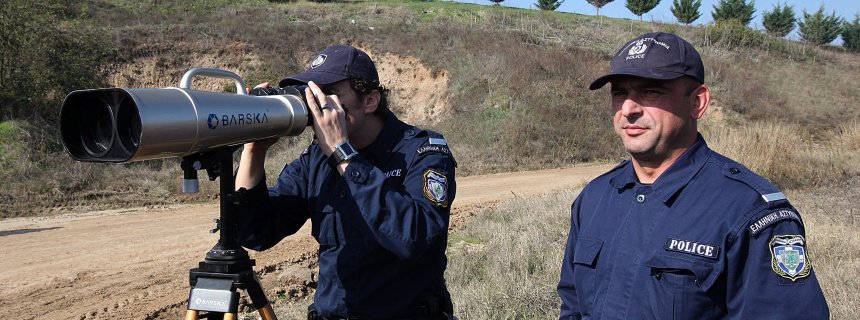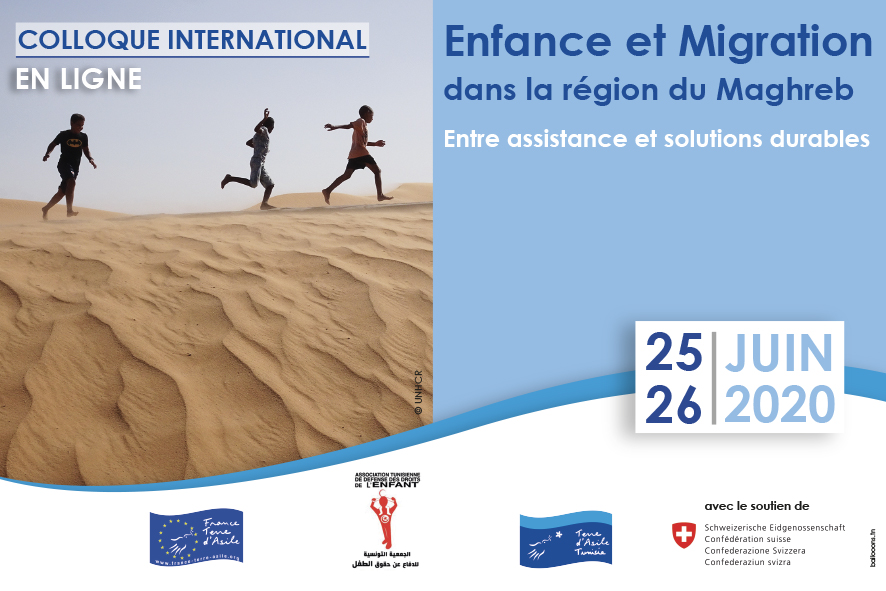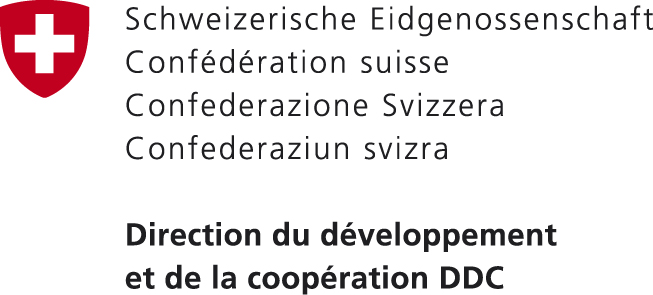Fortress Europe: How the EU Turns Its Back on Refugees

They come seeking refuge, but when asylum seekers cross into the European Union, they often find little compassion. In Greece, they are held in squalid detention camps, while in Italy they often end up on the street. Here is what they face at entry points across the EU.
They know they are putting their lives at risk. Nevertheless, many people board ramshackle watercraft and set sail from the coast of Africa in the hope of a better life in Europe.
While a few years ago it was predominately North African migrants coming to Italy in search of work, today it is often refugees from Syria, Afghanistan and Somalia who are fleeing chaos and violence in their countries. The number of asylum applications in Europe has sharply increased in the past six years.
Refugees are "particularly vulnerable people," warned German President Joachim Gauck after hundreds of people drowned off the coast of Lampedusa on Thursday. "Protecting lives and granting refugees the chance to be heard is at the foundation of our legal and moral codes," he concluded. On Tuesday, the EU interior ministers gathered in Luxembourg to discuss the consequences of the accident, which resulted in around 300 deaths. But despite heavy criticism, they couldn't manage to come to a decision about comprehensive change to European asylum policy.
The expectations of refugees who come to Europe often go unfulfilled. Many must struggle through long asylum application processes or fight against ingrained local prejudice. In some countries, they endure appalling living conditions in refugee camps; in others, they end up on the streets.
The correspondents of SPIEGEL ONLINE report on the situation in various European countries.
ITALY
The Lampedusa disaster has shaken the world -- especially Italy. The populace watches the images on television with horror, the body bags lined up across the beach. How can this be? "A disgrace," says Pope Francis. "Yes," agree many, "a disgrace." There is talk of solidarity. Italian Prime Minister Enrico Letta awarded posthumous Italian citizenship to the deceased.
Those who survived will now begin an unpleasant process. First, the prosecutor launches proceedings to determine whether they are illegal immigrants. If so, they will have to pay a fine of up to €5,000 (about $6,800). Even judges disagree with this practice. For the refugees, it hardly shows solidarity.
Those who come by sea end up in "reception centers," camps that are at best bleak, if not downright terrible. There are many among them who want to apply for political asylum -- but are not able or allowed to properly articulate their situation.
Others who have fled from war or political persecution accept the backhanded offer of temporary papers and sometimes even a €500 donation to help them head north -- to Switzerland, Germany or Scandinavia. According to official figures, 15,715 new asylum seekers remained in Italy in 2012. That comes to just 260 refugees per million Italian, according to EU statistics.
But Italy is not equipped to deal with even this modest amount. The country's institutional infrastructure for refugees and asylum seekers can hold less than a third of them. The refugees who do make it in are given a roof over their heads for at least six to 10 months. After that, they must leave their meager home.
Some find shelter, but lacking alternatives, most asylum seekers end up on the street. They live in parked trains in abandoned rail yards, condemned houses or on mattresses covered in plastic sheets on fallow land. Few find paying work -- at best, temporary, under-the-table work for €1, €2 an hour.
.
GREECE
For more than a decade, Greece has been the main entry point for illegal immigrants and asylum seekers from Asia and Africa. There, however, they find not the promised land, but a broken immigration and asylum system.
Asylum seekers are detained in overcrowded, squalid camps. Human rights groups and international media have repeatedly criticized this drama.
The situation of Syrian refugees in particular has stirred up debate. In 2012, Greece arrested 8,000 Syrians for entering the country illegally. According to UN data, only two Syrians were granted asylum last year.
The European Court of Human Rights has ruled that Greece's asylum system is inadequate and degrading. As a result, most EU states have ceased to deport refugees to Greece, despite the fact they are actually obliged to send asylum seekers back to the country where they first entered the EU (according to the to the 2003 EU regulation known as "Dublin II").
In early August, refugees in Amygdaleza, a new camp near Athens, revolted. Dozens fled the site, which the Greek ombudsman for asylum policies himself recognized as being of "a particularly prison-like nature."
Due to growing international pressure, Greece has begun to overhaul its asylum system. But the freeze on new hires and lack of funds due to the country's austerity measures make reforms difficult.
For most Greeks the disastrous refugee situation is hardly an issue. Many are nevertheless of the opinion that the country cannot accept any more foreigners. The beneficiaries of this public mood are far-right groups such as the Golden Dawn party, which is the third-strongest in the Greek parliament.
FRANCE
The major foreign policy topic in France over the past few weeks has been the Roma. Although there are only 15-20,000 of them in the country, they have been linked with criminality and unhygienic living conditions by politicians and the media. Even Socialist interior minister Manuel Valls said recently that it is not possible to integrate the Roma. Just as under former president Nicolas Sarkozy, they are being expelled in large numbers.
The much larger asylum issues, however, are rarely discussed in the French media: The number of asylum applications in France has increased by 73 percent in the past five years to 61,468. The authorities are completely overwhelmed by this influx.
Asylum seekers must lodge their application with the prefecture of the department's administrative center. Even just at this stage, officials need up to 70 days to issue a temporary residence permit -- the entire process takes an average of 20 months. First, the French refugee agency examines applications, with nearly 90 percent being rejected. An appeal is lodged in almost every case. According to a report by the interior ministry, some 37,000 people go underground without papers each year.
Because accommodation is so overcrowded, authorities in the city of Metz in the Lorraine region began housing about 450 asylum seekers in tents in a parking lot. Aid agencies complained about the "degrading" and "hygienically inadequate" conditions. Only in the past few days have authorities, acting under court order, begun to disband the camp.
The country's 271 reception centers have room for 21,400 people, but according to the interior ministry, a total of 35,000 are needed. The state has been housing asylum seekers partly in empty social housing in remote rural communities. This has led to objections from local politicians. Many asylum seekers are even being put up in hotels -- the total cost of housing including financial help for the asylum seekers is €550 million. In the press, the alarming reports have been taken as an indication that the government is planning to put forth a new asylum law.
GREAT BRITAIN
British tabloids often grumble that the UK has become a haven for asylum seekers. But in terms of the number of applications for asylum, the country ranks only fourth in the EU -- far behind Germany, France and Sweden. Some 20-25,000 such applications are made each year. The rejection rate is around 62 percent.
The largest source of asylum seekers is Pakistan, followed by Iran, Sri Lanka and Syria. They are not allowed to work in the UK and are dependent on the state. They are provided with furnished accommodation, usually in the form of rented social housing. Because of the lack of available housing, asylum seekers are generally not housed in London and rarely in the densely populated southeast of England. Instead, they are distributed across the rest of the country. For living expenses, each person receives 36.62 pounds (€43.43) per person per week. Access to healthcare is free.
A decision is made on each application for asylum within six months. During that period, the applicants must live at the address assigned to them and must be available to the authorities at all times. About 10 percent of all applicants are put on a fast track: If it is determined during the application process that the case is not complicated, the applicant will be admitted directly to a reception center. On the second day the interview takes place; a decision is made on the third day. The applicant may be deported after just a few days.
Following an asylum crisis in 2006, when the government faced a backlog of 450,000 unprocessed applications, the issue became a top priority. Since then, the authorities have brought the process under control. Nevertheless, the impression regularly made in the British media is that the country is still facing a barrage of applications. According to a study by Glasgow University, asylum seekers are usually referred to in the press as "illegal immigrants." Most of the articles consider how to refuse them access into the country or deport them.
SPAIN
The towns of Ceuta and Melilla are situated in North Africa but belong to Spain -- and therefore act as a magnet to many Africans. Migrants who want to flee to Europe set up camp around the Spanish enclaves. In the middle of September, authorities were surprised by a massive new influx: Dozens of Africans swam to Ceuta, while in Melilla they tore down a barbed wire fence. About a hundred made it onto Spanish territory. Human rights activists complain that border guards often simply send them back -- without checking whether they are entitled to asylum.
In recent years, Spain has massively upgraded its efforts to keep asylum seekers at bay. Six-meter-high wire fences have been erected around the enclaves and infrared cameras monitor the area.
There are also stricter controls in the Medterranean, and the coasts are protected. Some 31,000 boat people, mainly from North and West Africa, arrived in the Canary Islands in ramshackle ships in 2006. Since then the number has dropped dramatically: Just 173 landed in the Canaries in 2012.
Last year also showed a general downward trend: A total of just 2,580 applications for asylum were made in Spain, the lowest figure in 25 years. The applicants come from Syria, Algeria and West African countries like Nigeria and Cameroon.
They are accommodated in detention centers spread across the country. Four such centers are under the direct control of the government. Many others are operated as non-profit organizations, such as the Spanish Commission for the Assistance of Refugees (CEAR).
Those who are granted asylum are entitled to €51.60 a month. There are also extra funds for families as well as payments for public transport, clothing and education.
SWEDEN
Sweden grants entry to a comparatively high number of asylum seekers. And yet many are not happy. In May, the outside world watched on in amazement at usually placid Sweden as youths in the suburbs set cars on fire and threw stones. Almost all of the residents in the Husby area of Stockholm have foreign roots -- and the unemployment rate is around three times as high as the rest of the city at 9 percent. Sweden has its own word for this alienation or exclusion, utanförskap. Many young people feel marginalized and harassed by the police. Although they are provided for, they feel unwanted and without a productive role in society.
Around 43,900 people sought asylum in Sweden last year, according to the body responsible, the Migration Board. This year the number is again expected to rise significantly: Compared to the same period last year, nearly 20 percent more people have applied for asylum in 2013. Most come from Syria, Eritrea, Afghanistan and Somalia. In 2011, applicants had to wait on average 149 days until their application was processed, and Sweden grants asylum to about a third.
The Migration Board provides applicants with housing but they are also allowed by law to organize their own accommodation, with friends or relatives, for example -- about 40 percent did this last year. This law has been repeatedly criticized, for example by Angeles Bermudez Svankvist, the director of Swedish employment services at the time. She told Sveriges Radio at the beginning of the year that asylum seekers had gathered in a few specific areas which resulted in "an incredibly difficult social situation."
Refugees have reported being forced to live like animals in some areas. There are disputes, fires, threats; in two months, police have been called 30 times, according to one asylum seekers in the Örebro municipality. Sometimes there are six or seven people sleeping in the same room. Things are more comfortable, however, for asylum seekers at Wermlandia, a former spa hotel in Eksharad in central Sweden. The owner speaks proudly of the "most luxurious refugee accommodation in Sweden." It follows from this logic that many of the residents of Wermlandia might find it difficult to go elsewhere in Sweden.
AUSTRIA
The Saualm is history: The former refugee center has long been regarded as an example of questionable asylum policies in Austria. The "special supervision institution for suspected criminal asylum seekers" was set up by the late Jörg Haider, the controversial right-winger who was governor of the state of Carinthia at the time. It was closed last year after reports of rotten food and a lack of access to medical care.
Refugee organizations were relieved. But it did not cause them to sit back and relax. Although in comparison to the rest of Europe, Austria has "not the worst asylum system," according to Anny Knapp of Asylum Coordination Austria (ACA), improvements are still possible in many areas. This includes, for example, legal advice and housing, which is often unsatisfactory. As in Germany, asyslum seekers in Austria are often located in remote areas.
According to ACA, allowances were recently increased, with the daily rate in community housing up to €19 from €17.
Last year, there were around 17,500 applications for asylum in Austria, of which 3,680 were accepted. Most applicants were from Afghanistan, Russia and Pakistan.
Some asylum seekers have already been waiting for more than five years for a final decision on their application. Meanwhile, there is a tendency to make rapid decisions on new applications. This is generally to be welcomed. In the accelerated process, however, individual cases "consistently get left behind," says Knapp.
Starting next year, a more senior body will be responsible for asylum procedures in Austria: the Federal Office for Foreign Affairs and Asylum. It will be under the auspices of the Interior Ministry and will "respond more effectively to the increasing effects of global migration movements," according to a ministry handout.
Le 09/10/2013, Spiegel Online







